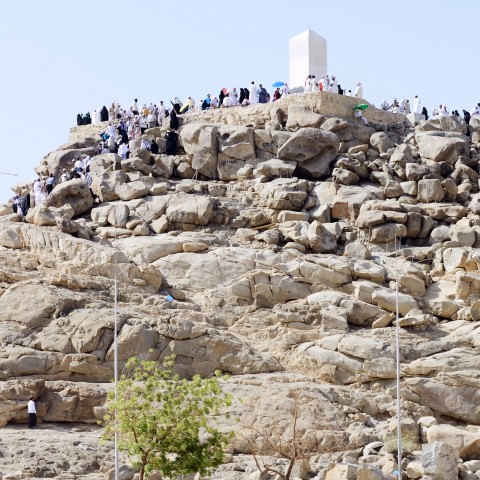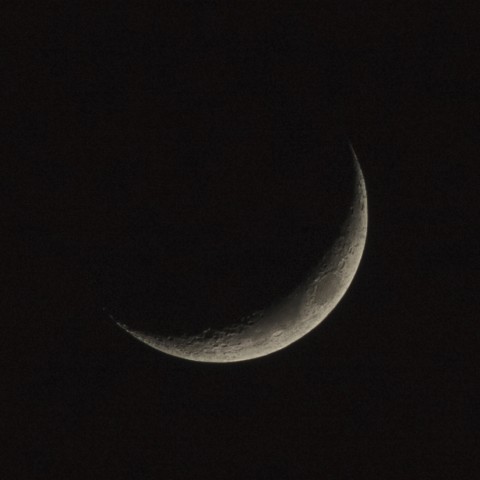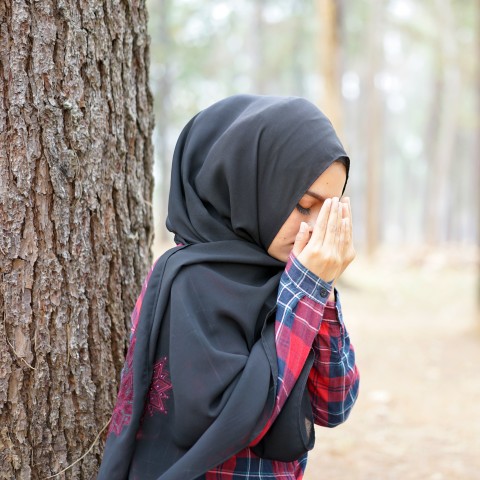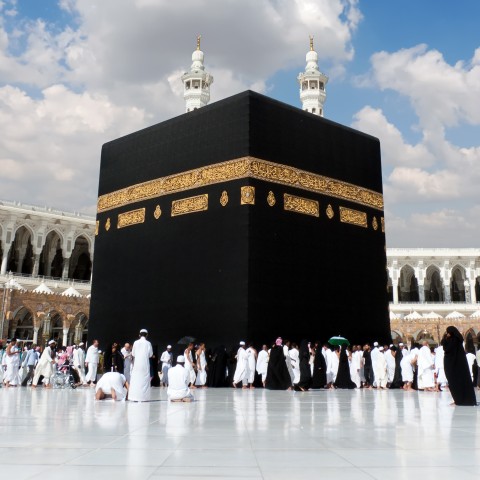A popular saying about the Day of Arafah goes:
“There is no day on which Allah sets free more slaves from Hell than He does on the Day of `Arafah.“
In this article, we’ll focus on the importance of the Day of Arafah for Muslims, go over how it’s celebrated, and introduce you to some useful Arabic vocabulary.
Let’s get started!

1. What is the Day of Arafah?

The word Arafah comes from the word Ta’aruf, which means “to know one another.” However, there’s no definite information about why this day was called Arafah. Some researchers say it’s because people get to know one another on this day. Others say it’s because Arafah was where Adam and Eve met for the first time and recognized each other after being sent down to reside on Earth.
The Day of Arafah, sometimes called the Day of Forgiveness, is one of the most significant holidays in the Muslim religion. It marks the second day of the Hajj, the Muslim يحج (yeḥeǧǧ), or “pilgrimage,” to Mecca. This is considered a time of repentance, forgiveness, and دعاء (duʿāʾ), or “supplication.”
So, what happened on the Day of Arafah that gave it this status?
Many Muslims believe that the Prophet Muhammad gave his final sermon on the mountain of Arafah. This sermon indicated the perfection of the Muslim religion and the completion of God’s blessings (that is, His forgiveness of their sins).
- Since you’re here, why not learn the names of different religions in Arabic and study the Top Five Important Dates in Egypt?
2. When is the Day of Arafah This Year?

Here’s a list of this holiday’s date on the Gregorian calendar for the next ten years.
- 2020: July 30
- 2021: July 19
- 2022: July 9
- 2023: June 28
- 2024: June 16
- 2025: June 6
- 2026: May 26
- 2027: May 16
- 2028: May 4
- 2029: April 23
3. Customs and Traditions for the Day of Arafah

As mentioned, this is the second day of the pilgrimage to Mecca. At dawn, pilgrimaging Muslims say a special prayer as they prepare to leave Mina. Before arriving at the holiest site called كعبة (kaʿbah), or “Kaaba,” in Mecca, Muslims gather at Arafah. This gathering place is so important to the pilgrimage that the entire journey is seen as invalid without this stop.
At Arafah, they say prayers, make supplications and invocations, and ask forgiveness from Allah. Supplication on the Day of Arafah, often called Dua, refers to speaking with Allah. One may speak with Allah for help in one’s own life or ask for His interference in a loved one’s life. On the Day of Arafah, Dua is often done while prostrating on the ground, facing the Kaaba. It’s also said that anyone who asks for Allah’s forgiveness on this day will receive it. Muslims listen to a خطبة (ḫuṭbah), or “sermon,” from the Pilgrim’s Imam while at Arafah, which takes place before the noon prayer.
Those who are unable to make the pilgrimage are encouraged to fast. Fasting on the Day of Arafah is said to ensure Allah’s forgiveness for the current year and the next year, even if they didn’t participate in the pilgrimage.
On or before the Day of Arafah, many Muslim mothers buy new هدوم خروج (hodūm ḫorūg), or “outerwear,” and pajamas for their children. They then encourage their children to wear the new pajamas for feast night on the Day of Arafah, because this provides an opportunity to teach them about the virtues and meaning of the holiday.
4. Popular Dua for the Day of Arafah
We’ve mentioned supplications (Dua) quite a few times in this article, but what exactly do these sound like?
Well, Muslims are allowed to make supplication in their own words, but there are a few popular Dua that Muslims like to use. For example, there are many Dua for fasting on the Day of Arafah and for breaking fasts (such as the fast of Ramadan).
Possibly the most popular Dua on the Day of Arafah, though, is:
“There is absolutely no god worthy of being worshipped except Allah, Alone, without any partner. To Him belongs the Kingdom, and all praise is due to Him, and He is Powerful over everything.“
You can read more about common Dua on TheRamadanKareem.com.
- Don’t forget to check out this interesting lesson where Nora answers your questions about phrases in Arabic affected by religion!
5. Must-Know Day of Arafah Vocabulary

Let’s review some of the vocabulary words and phrases from this article!
| English | Arabic | Romanization | Part of Speech + Gender |
|---|---|---|---|
| Mountain | جبل | ǧabal | Noun, masculine |
| Researcher | باحث | bāḥeṯ | Noun, masculine |
| Day of Arafah | يوم عرفة | yūm ʿarafah | Noun, masculine |
| Arafah | عرفة | ʿarafah | Noun, masculine |
| Pilgrimage | يحج | yeḥeǧǧ | Verb |
| Lunar | قمري | qamarī | Adjective |
| Kaaba | كعبة | kaʿbah | Noun, feminine |
| Rite | منسك | mansak | Noun, masculine |
| Sacrosanct | حرم | ḥaram | Noun, masculine |
| Supplication | دعاء | duʿāʾ | Noun, masculine |
| Forgive | يغفر | yeġfer | Verb |
| Invocation | ابتهال | ebtehāl | Noun, masculine |
| Sermon | خطبة | ḫuṭbah | Noun, feminine |
| Outerwear | هدوم خروج | hodūm ḫorūg | Noun, feminine |
| Fast | يصوم | yeṣūm | Verb |
| Pajama | بيچامة | bīǧāmah | Noun, feminine |
Remember that you can find each of these words with an audio pronunciation on our Day of Arafah vocabulary list!
Final Thoughts
The significance of the Day of Arafah for Muslims can’t be overstated. This is a day of incredible forgiveness, a chance to show one’s love and devotion to Allah, and also a time to get to know fellow Muslims.
What are your thoughts on the Day of Arafah? And what are some of the biggest religious celebrations or events in your country? Let us know in the comments!
If you want to continue learning about Egyptian culture and Islamic holidays, ArabicPod101.com has several free resources for you, straight from our blog:
- When is Eid al-Adha in Egypt? – Islamic Holiday Guide
- UAE Etiquette: Body Language in Arab Culture
- Give and Take: Secrets of Gift-Giving in Arabic Cultures
- Your One-Size-Fits-All Guide to UAE Business Culture
- Life Event Messages: Happy Birthday in Arabic & Beyond
Whatever your reasons for wanting to learn Arabic or explore Egyptian culture, ArabicPod101 has your back! Create your free lifetime account today, and take advantage of our numerous resources, including audio/video lessons, themed vocabulary lists, spaced-repetition flashcards, and much more!
Happy learning, and stay safe out there!










